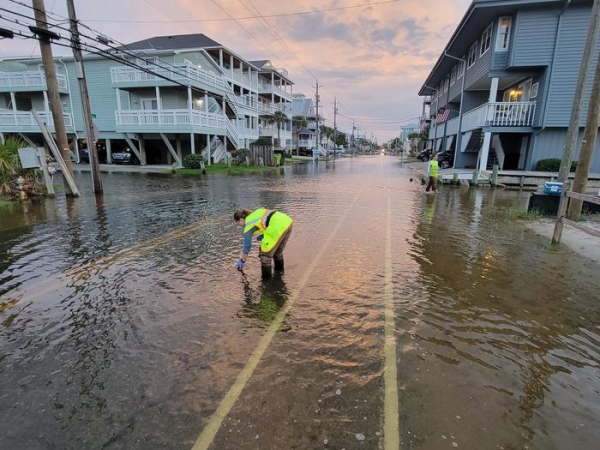Flooding in coastal communities is happening far more often than previously thought, according to a new study from North Carolina State University and the University of North Carolina at Chapel Hill.
Flooding in coastal communities is happening far more often than previously thought, according to a new study from North Carolina State University and the University of North Carolina at Chapel Hill. The study also found major flaws with the widely used approach of using marine water level data to capture instances of flooding.
“Government agencies and researchers use data from tide gauges to measure water levels in coastal areas, then use that data to estimate flood frequency in the region,” says Miyuki Hino, corresponding author of a paper on the study and assistant professor of city and regional planning at UNC. “Those estimates are used both to assess how often flooding has taken place and to predict how often flooding may take place in the future. However, our study shows that this approach does not accurately capture how often flooding takes place or how long those floods last.”
“Due to sea-level rise, we’re now seeing flooding in coastal areas outside of extreme storms like hurricanes,” says Katherine Anarde, co-author of the paper and an assistant professor of coastal engineering at NC State. “There can be flooding during everyday rain showers or at high tide on sunny days. It’s important that the methodology we use to monitor and predict flooding reflects this reality, since sea-level rise means these flooding events are going to become even more common.
Read More: North Carolina State University
A new study finds that coastal flooding happens far more often than previously thought -- and that there are major flaws with the widely used approach of using tide gauge data to capture instances of flooding. This photo shows a researcher collecting floodwater samples in Carolina Beach, N.C. (Photo Credit: Sunny Day Flooding Project)




